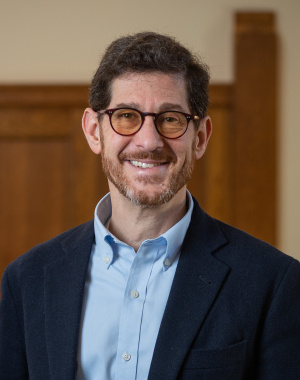Lead in the water: What are the educational impacts on Flint students?
Featuring Dr. Mona Hanna-Attisha
Speaker
Mona Hanna-Attisha, Sam Trejo, Kevelin JonesDate & time
Location
In early 2016, the Flint Water Crisis captured national attention - major news outlets reported that the city’s tap water had been contaminated with lead since April of 2014. Given the well-documented detrimental effects of lead exposure in early childhood on cognitive development, many worried that the academic progress of Flint's youngest residents may have been impacted. Over the past few years, important data has become available, allowing researchers to rigorously study and measure effects of the lead water crisis on children in Flint.
Earlier this year, the University of Michigan’s Education Policy Initiative (EPI) produced a working report that linked household water pipe data to educational outcomes. Join the Gerald R. Ford School of Public Policy and EPI on November 30 to hear key findings on the academic impacts of the Flint Water Crisis 7-8 years later, followed by a conversation to discuss the big picture implications for young people in the community. Facilitated by Ford School Professor Brian Jacob, the conversation features Dr. Mona Hanna-Attisha - recognized as one of USA Today’s Women of the Century for her role in uncovering the Flint water crisis and leading recovery effort - alongside Dr. Sam Trejo, Assistant Professor of Sociology at Princeton University, and Flint Community Schools Superintendent Kevelin Jones.
Refreshments to follow in the Rebecca Blank Great Hall, courtesy of the U-M Beta Alpha Rho Fraternity and the Flint Justice Partnership.
Copies of Dr. Hanna-Attisha's book, What the Eyes Don't See, will be provided to the first 75 attendees in attendance.
This event is made possible in part through the generous support of the Gilbert S. Omenn and Martha A. Darling Health Policy Fund, and co-sponsored by the University of Michigan Education Policy Initiative (EPI) and School of Public Health.
About the speakers
Dr. Mona Hanna-Attisha is a C. S. Mott Endowed Professor of Public Health at Michigan State University College of Human Medicine and founding director of the Pediatric Public Health Initiative, an innovative program of MSU and Hurley Children’s Hospital in Flint, MI. A pediatrician, scientist, activist and author, Dr. Hanna-Attisha was named one of Time magazine’s 100 Most Influential People in the World and recognized as one of USA Today’s Women of the Century for her role in uncovering the Flint water crisis and leading recovery efforts. She has testified multiple times before the United States Congress, lectures at dozens of colleges and universities, and frequently contributes to national media outlets championing the cause of children in Flint and beyond. An accomplished academic and an inspiring change-maker, Dr. Hanna-Attisha is a tenured professor and author of the widely acclaimed and New York Times 100 most notable book, What the Eyes Don’t See: A Story of Crisis, Resistance, and Hope in an American City.
Sam Trejo is an assistant professor of Sociology at Princeton University. His primary fields of interest are social science genomics, social demography, education and health policy and human development. Sam researches polygenic scores which measure a person’s genetic predisposition for a trait. He also leverages both field and natural experiments to explore the processes that produce educational and health inequality, with an emphasis on the reciprocal relationship between education and health. He is currently teaching Genomics and Society at Princeton. Sam received his Ph.D. in Sociology & Education, Economics & Education from Stanford University.
Kevelin Jones has been an educator for 19 years, with a master's degree in educational leadership. Kevelin Jones served in the capacity of Dean of Students, Dean of Middle School, principal (High School and elementary), Assistant Superintendent, and now, Superintendent of Flint Community Schools. Superintendent Jones serves on several boards in the Flint area. Sloan Museum board trustee, Flint Registry board trustee, Great Health Coalition board trustee, and the president of the Scholars Etiquette and Self-Image Institute. Superintendent Jones passions are family, education, and music. As an educator, nothing is more important to him than building relational capacity with colleagues, parents, and scholars! Relational capacity, strong but shared leadership, will lead to academic excellence and a positive school climate. It is Superintendent Jones goal to see a bright future for Flint, as he was born and raised in the Flint Community.
